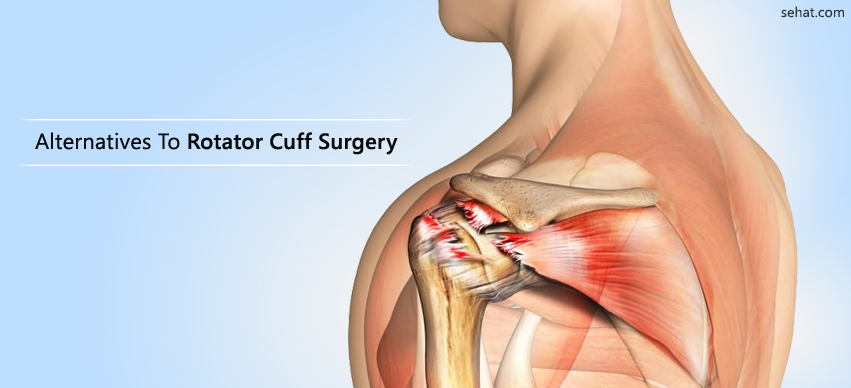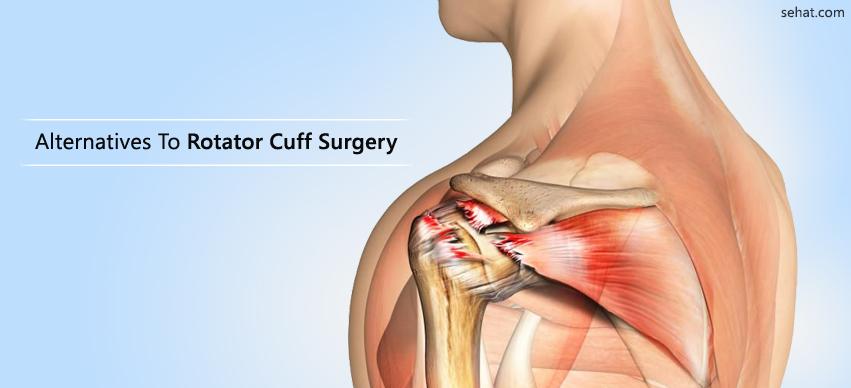Microplastics in Humans: Understanding the Risks and How to ..
8 Min Read


Rotator cuff, as the name implies, helps in rotation. It forms an important part of the shoulder joint as helps in securing the junction between the upper part of the arm bone with the socket of the shoulder. The rotator cuff is composed of muscles and tendons and each muscle performs important functions in maintaining the integrity of the joint as well as helps movement in different directions. The muscles associated with the rotator cuff are Supraspinatus, Infraspinatus, Teres Minor, and Subscapularis.
Because rotator cuff plays a vital role in providing support in our daily activities like eating, combing hairs, playing various games and getting something from the shelf, it is natural to have wear and tear of these muscles and tendons and risk of damage to these muscles are high. Common injuries related to the rotator cuff are rotator cuff tear, bursitis, and tendonitis. Rotator cuff tear is commonly found in people who use their shoulder joints extensively mainly because of their professions such as carpenter or painter or people involved in certain games such as tennis. Read more to know about the alternatives to rotator cuff surgery.
Surgery is not the only option for rotator cuff injury. Various alternative methods are available that helps to heal a torn rotator cuff, naturally. Some of the alternative treatments to rotator cuff surgery are;
The major symptom of the rotator cuff injury is weak muscles and progressive pain, especially while doing routine activities. The physical therapy for rotator cuff repair helps to regain the lost strength and assists in performing the routine activities without imparting extra pressure on affected shoulders. The therapy helps in a smooth movement that was not possible due to stiff muscles. It also helps in evaluating the cause of pain in the shoulders and is the way to decide if surgery is required or not. If the symptoms of patients get alleviated because of physical therapy, surgery can be avoided or postponed. Because of rotator cuff injury, the movement of the joint gets limited. Physical therapy helps in increasing the range of motions.
Massage helps in improving the pain and inflammation experienced by the patient suffering from rotator cuff injury. It helps in improving muscle flexibility and increasing range of motions. Weakness in muscles is reversed by gentle stretching which improves the blood supply and hence the energy to the affected muscle. Massage therapy and physical therapy are sometimes combined to get the maximum benefits. Further, massage therapy also helps in managing the stress develops due to rotator cuff injury.
Acupuncture, for whatever reason it is to be done, should be performed by a qualified and registered acupuncturist. Acupuncture is the process of alleviating pain by inserting very fine needles into the skin. This pricking triggers the secretion of chemicals in the body that has pain-relieving properties. Many doctors and professionals related to alternate medicines believe that this is an effective way of managing pain.
Pain is the most common symptom of rotator cuff injury. Pain affects the quality of life and this is primarily the reason for the patient to opt for surgery. There are various pain-relieving medications that help to manage the pain. These medications are available in different dosage forms depending upon the severity of pain and patient’s compliance. These include oral medications, topical medications, and injectables. Oral medications include diclofenac, aceclofenac, ibuprofen, and other pain relievers. Topical treatments available are ointments containing menthol, capsaicin, methyl salicylate, or eucalyptus oil. In injectable dosage form, steroids are preferred anti-inflammatory.
Hot and cold packs reduce pain and inflammation in the case of rotator cuff injury. Hot packs improve blood circulation in the affected area. Further, it helps in providing flexibility to the muscles and also aids in tissue healing. Cold packs work in a reverse manner when compared to hot packs. By reducing blood flow, cold packs reduce swelling and inflammation, thereby reducing pain. Cold packs also cause numbness in the nerve activity which further reduces pain.
A person with rotator cuff injury should take good care of the affected shoulder. In the absence of proper care, the pain would progressively get severe to such an extent that surgery would be the only option left. The patient should avoid activities that create an impact on the shoulder such as contact sports or the activities in which the risk of falling is high. The patient should not lift heavy objects and must include exercise in daily routine to keep muscles flexible. The patient may also have support for their shoulders while sleeping and should sleep in a comfortable position.
Rotator cuff injury is the injury of muscles and tendons of the shoulder that connects the humerus to the socket. Surgery is often advised in case of rotator cuff surgery, treatment for torn rotator cuff without surgery are available that helps to alleviate the pain and improves the strength and flexibility of muscles. The alternatives treatment for rotator cuff surgery includes medications, physical therapy, massage, cold and hot packs, and taking good care of shoulders.